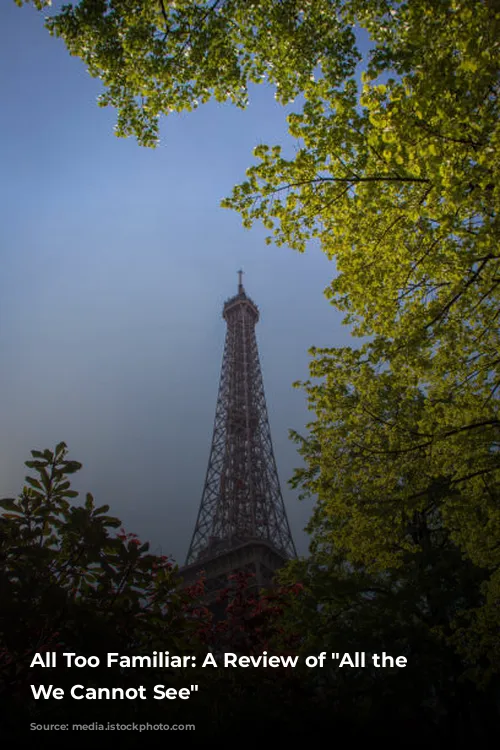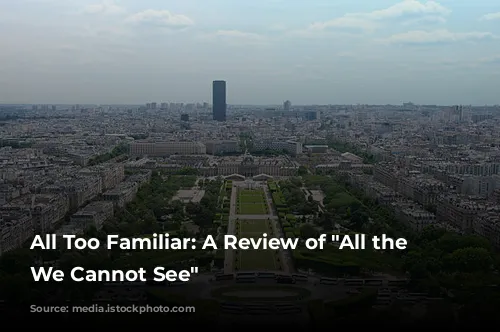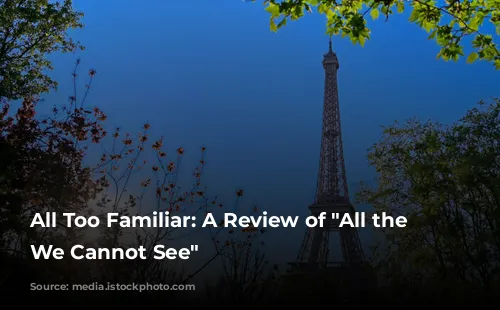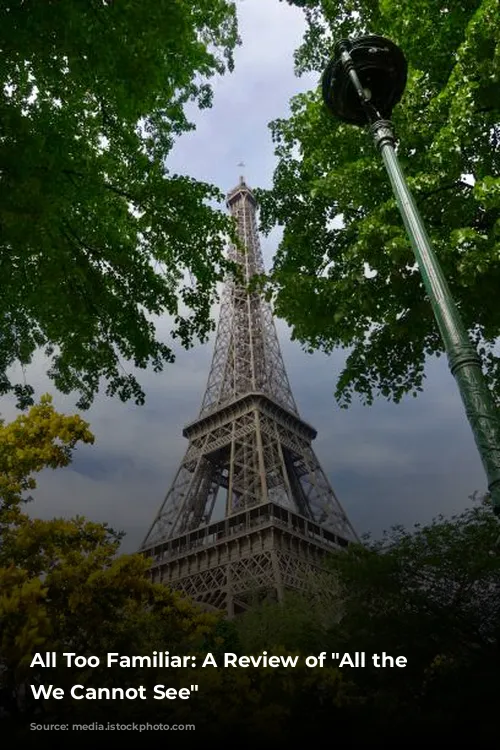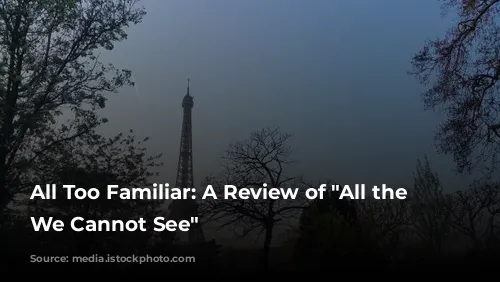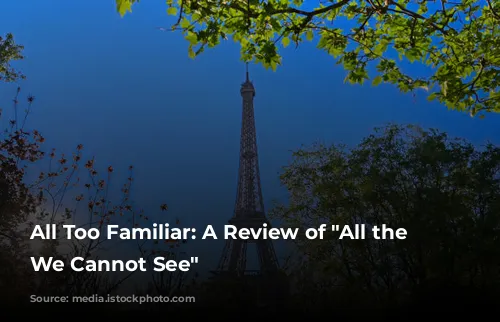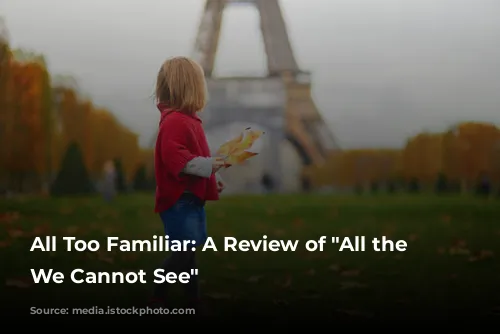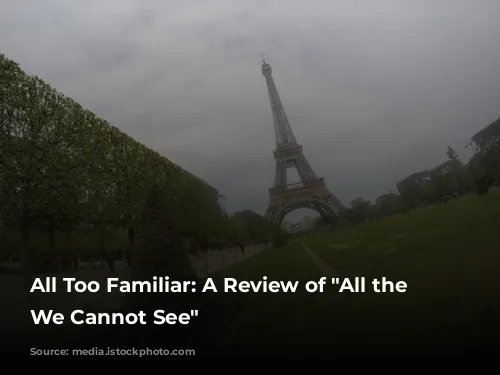Oh boy, where do I even begin? This book, “All the Light We Cannot See,” is currently all the rage. Everyone seems to adore it, but I, unfortunately, did not. It pains me to admit it, especially because I know the author poured a lot of hard work and dedication into this project. It’s obvious there was a lot of meticulous research involved to ensure accuracy. At least I’m assuming the historical details were accurate; I’m no expert on the matter. I can only imagine how frustrating it must be for the author to see their work fall flat for some.
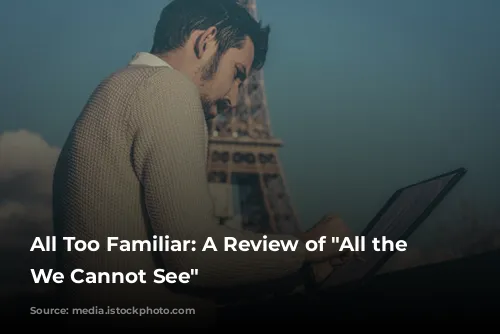
A Dreadful Journey of Boredom
First, let’s talk about the length. This book is monumentally long. Long in pages, long in story, long in word count, and long in boredom. I slogged through almost 300 pages, wondering when something would actually happen. I desperately waited to get invested in the characters, but it never happened.
There were fleeting moments of interest, like Werner’s friendship with Frederick, but then BAM, a switch in perspective and we were back to Marie-Laure or some other forgettable character. Now, I usually enjoy short chapters and multiple viewpoints, but in this case, it just didn’t work. It felt like the author had two distinct ideas for a WWII novel and tried to force them together with tenuous links. The connection between Werner and Marie-Laure felt contrived, like a far-fetched plot device used to meld two separate stories into one. Honestly, I would have preferred it if Marie-Laure had been completely edited out of the narrative. I never found her chapters interesting, and I never cared what happened to her.
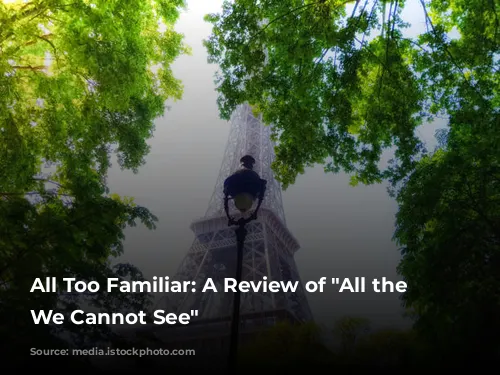
Characters Lacking Depth
Speaking of caring about characters, why did I feel no connection after 530 pages? That’s a considerable amount of story, enough time to build some emotional depth. Yet, I couldn’t care one bit about what happened to any of them. Even with Werner’s death (which was the most pointless and abrupt death I’ve ever read), I didn’t care that he suddenly vanished. He was the only character I found remotely interesting, and when he exploded into nothingness, I thought, “Oh well, that was quick.” Other books about similar themes would have brought me to tears.
My problem was that the characters were completely one-dimensional. In the early chapters, I pictured Marie-Laure as Anne Frank or Liesel from “The Book Thief,” not because they were particularly similar, but because they were young girls living through WWII. I desperately needed someone to connect with and care about, and this book just wouldn’t give me that.
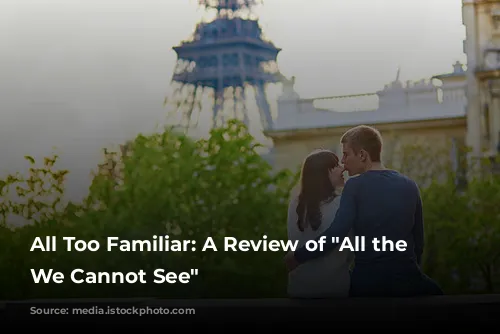
An Obvious Predicament
Another problem? On page 25, I remember thinking it was pretty obvious that Marie-Laure was going to be the owner of the “Sea of Flames” diamond. I saw the tragedy unfolding for everyone around her while she miraculously survived until the end, only to toss the gem back into the ocean. I even wrote down the page number and thought, “I hope I’m not reading another 500 pages just to find this out.” I was.
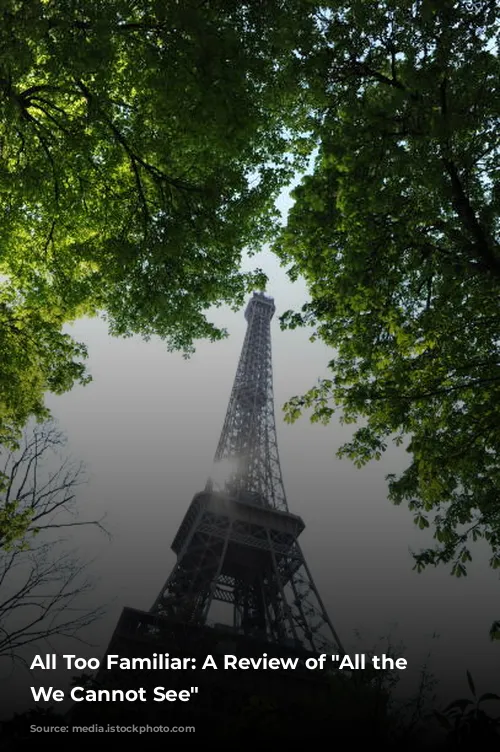
A Rushed Timeline
The pacing was terrible, too. Pages and pages were dedicated to the events leading up to 1941. Then, suddenly we were in 1942. Blink and bam, it’s 1944. I’m sure I missed a good 2-3 years of anything happening. It’s not like I wanted those sections filled with filler, but surely there were important events that occurred during those missing years?

Unnecessary Characters and Scenes
Then there’s the Sergeant-Major, who was so forgettable I had to look up his name! You know, the diamond hunter? Honestly, I think he should have been called the diamond hunter instead of having a name because he was such a pointless and redundant character.
And then we have the gratuitous and unnecessary rape of Jutta in Berlin. Did the author move her to Berlin just to make it fit that she could be raped by the rampaging Russians? I’ve read other novels that deal with this event in an emotional and graphic way, but here it felt like a history lesson footnote. Yes, we know what happened to women at the end of the war in Berlin, but Jutta hadn’t been in the story for about 300 pages, so I really didn’t care what happened to her.
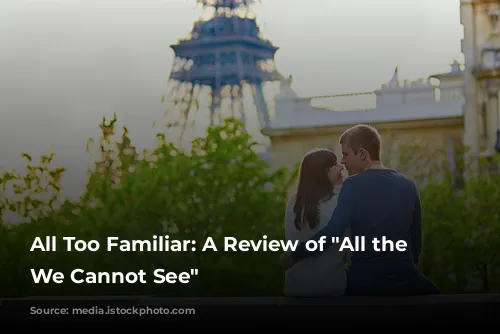
A Lackluster Ending
Finally, the ending, which is actually the worst part of the entire book. I’m talking about the last 50 pages. Everything after Marie-Laure leaves Werner with the key and hopefully walks to safety. The story should have ended there! Instead, it suddenly switched back to previous characters who hadn’t been mentioned in hundreds of pages. It felt superfluous, like the author was just trying to tie loose ends together to make his story fit a framework.
He even provided fanciful explanations for how everything was connected. I’m astounded by how the miniature house was supposed to find its way back to Volkheimer, then to Jutta, over to Saint-Malo, and miraculously into Marie-Laure’s hands. Completely unbelievable. Why not have her Papa reappear fresh off the train so they can skip along the gardens of Paris? And then, of course, there’s the unnecessary update on Marie-Laure’s later years. Yawn.
So, can you tell that I didn’t like this book?
